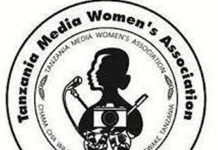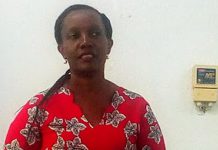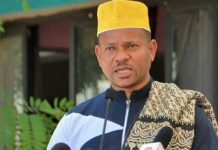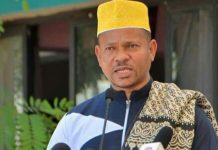ZANZIBAR women groups’ savings increased substantially to over 1.5bn/- last year from 312m/- in 2016, thanks to Tanzania Media Women Association, (TAMWA) Zanzibar’s empowerment project.
Under the three-year Women Empowerment in Zanzibar (WEZA II) project, the weekly saving capacity of women groups also increased to over 10,000/- from 2,500/-, according to the latest project evaluation report.
The report further shows that as of June 2019, the average share value stood at 3,800/-, with 14,272,300 as the highest group saving.
Presenting WEZA II evaluation report here over the weekend, the Project Consultant, Dr Mohammed Makame Mohammed, said majority beneficiaries— about 67 per cent—reported improved business environment, saying their business conditions were now better.
Through the project, TAMWA Zanzibar sought to fight poverty and improve social justice in Unguja and Pemba islands. The association spearheaded the formation of over 280 women groups, with about 6,000 members engaged in various economic activities.
“Our specific objective was to increase income while progressively reducing social, cultural and political barriers to women’s empowerment,” TAMWA Director Dr Mzuri Issa told the stakeholders’ meeting here over the weekend.
Dr Makame said the overall evaluation showed high performance of the project execution and coordination albeit minor challenges in some of the field project employees “who lacked the requisite capacity to support the beneficiaries.”
He said the project was found to have a high impact on beneficiaries’ life, with the majority admitting to having their lives changed under WEZA II coordinated village savings and loans, which have greatly contributed to poverty reduction.
The consultant said while the majority of women were engaged in petty businesses in the past three years, “…currently, they are in the production industry with not only factories of Bambi and Mavungwa but also handcraft, cosmetics, poultry and vegetables.”
The women entrepreneurs have reportedly improved their labels and packages for their products, a great improvement as compared to the 2016 situation. Some of the project beneficiaries shared their testimonies, appreciating the project promoters and implementers for the job well done.
“Before this project, I was a mere housewife with no income at all but I can today general at least 300,000/- from my businesses,” testified Faida Mohamed Shaib whose agricultural processed products have secured domestic and export markets.
Ms Nachumu Juma Simai pleaded with TAMWA and its partners to sustain the project, which she said has liberated her socially and economically. “I can now provide for my family without any difficulties,” she appreciated.







